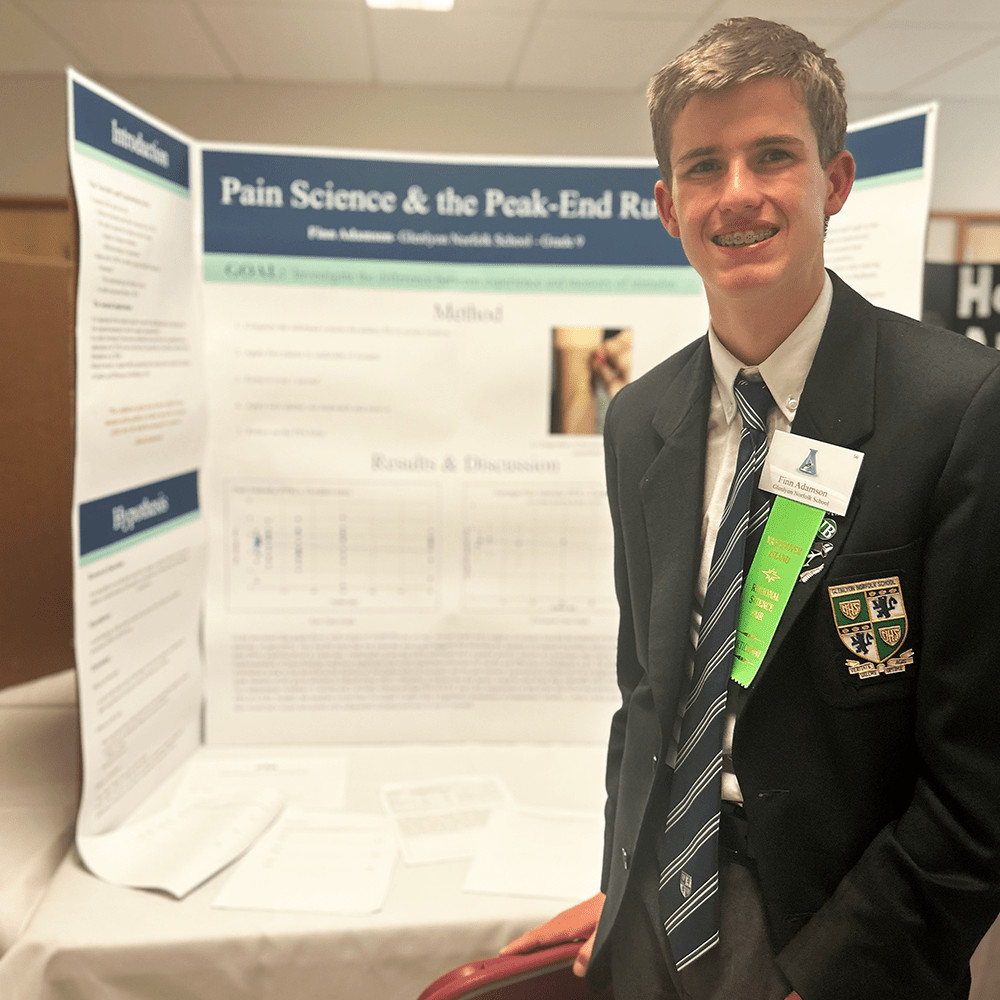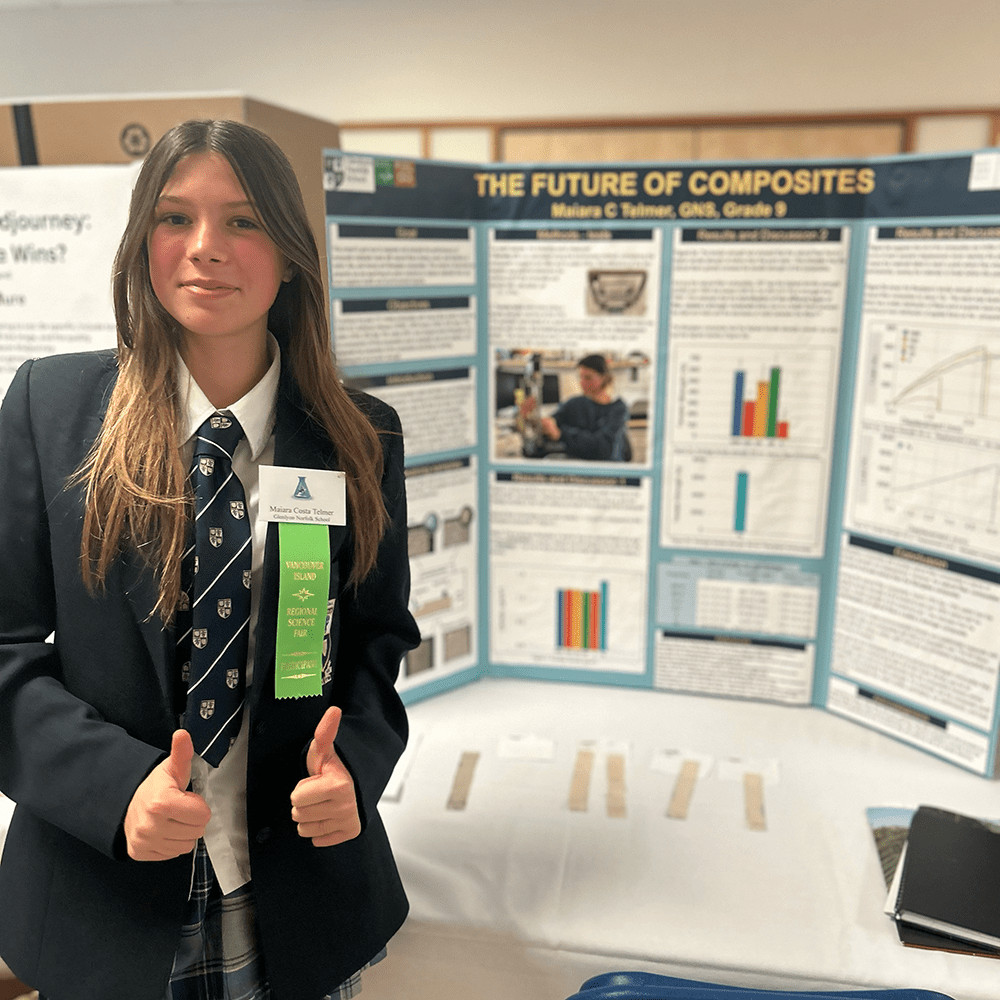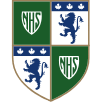The Vancouver Island Regional Science Fair at the University of Victoria recently witnessed a display of ingenuity by GNS students, with projects ranging from psychology to machine learning applications in healthcare.
Finn Adamson, a Grade 9 student whose project was titled: Pain Science and the Peak-end Rule, came in 5th Overall and will advance to the Canada-Wide Science Fair. He delved into the realm of psychology, exploring the utilization of cognitive biases in the medical system to alter the patient’s perception of pain.

“My project itself was on how we can use cognitive biases in the medical system to create a situation where even if an individual’s pain can’t be reasonably reduced in the moment, can we make it something that they look back on as more positive than it would have if the procedure had not been taken.”
Finn’s inspiration stemmed from neuroscience literature, where he discovered the intriguing duality of brain function—sensation in the moment versus story and narrative formation during the recollection of an experience.
Kaitlyn Chan, a Grade 10 student, ventured into the realm of machine learning applied to healthcare systems with her project: Predicting Surgical Patient Outcomes. This involved developing predictive models for ICU admission and in-hospital mortality using a dataset of surgical cases from a Korean hospital.

“I used a publicly available data set consisting of 130,000 surgical cases at a Korean hospital. I used that to build and test a machine-learning model. I have done quite a few projects on healthcare systems throughout my Grade 10 year and I was inspired by Canada-Wide Science Fair projects and seeing other people using machine learning models in general. I thought it was applicable to use it within healthcare systems.”
A challenge for Kaitlyn was in finding a dataset. Given the sensitivity of healthcare data, accessing suitable information was something for which she had to dive deeply. However, using her resourcefulness and connections, she identified a dataset through academic channels that her mother’s colleagues at UVic suggested she look into.
Grade 9 student, Maiara Telmer came second overall for her project: The Future of Composites. She is set to advance to the Canada Wide Science Fair along with Finn and Kaitlyn.
“The overall goal of my project was to replace the fibreglass inside of a composite material with natural fibres. I wanted to replace fibreglass because it’s a really bad material for our health and it’s also not biodegradable.”
Maiara conducted tests on a fibreglass composite alongside various composites made from natural fibres, assessing their strength and density. Although fibreglass emerged as stronger, she found that natural materials remain viable options for composite use, particularly in applications where strength is less critical. Their lower density offers advantages in shipping and packaging, contributing to the development of safer materials for workers handling the materials and waste reduction efforts.

All three students said that the learning experience they had through participation in science fairs was extremely valuable.
“It immerses you in your project,” said Kaitlyn. “Depending on your project you have different learning outcomes. In Grade 9 I did hands-on experiments, which is very different from what I did this year, which was more technical and building a prototype.”
Finn stressed the importance of communication, dedication and time management. Offering advice to aspiring future participants at GNS, he urged students to leverage available resources and pursue projects they are genuinely passionate about, rather than opting for convenience.
Similarly, Kaitlyn encouraged peers to explore their interests within STEM and emphasized the significance of passion in driving meaningful scientific inquiry.
“Find your passion, STEM is so wide and it is so easy to take what you’re passionate about and make it your own, then test a hypothesis. It’s also easy to detect whether people are passionate about their project or not,” said Kaitlyn, urging students to immerse themselves fully in what they choose.
GNS Science Teacher, Ms. Anne-Marie Simard, said that participating in events like the regional science fair exposes students to real-world scientific inquiry and fosters critical thinking, problem-solving and communication skills. “For many of them, it is also the first time that they feel validated by scientists and professionals about their ideas outside of the school context.”
Students benefit from developing research, analysis and presentation skills, as well as gaining a deeper understanding of scientific concepts, Ms. Simard added. “They also learn to persevere through setbacks, adapt to changing circumstances and appreciate the value of experimentation and exploration. The best part is also often for them to meet other young scientists from other schools and districts that share the same interest in science.”
A total of 13 GNS students participated in the 2024 Vancouver Island Regional Science Fair held at UVic. Every student came back with at least one award, and a total of three students advanced to nationals, to be held in Ottawa later this month.
The GNS community is proud of its students as they close on another successful year while up against other outstanding projects from all over Vancouver Island and the Gulf Islands.




